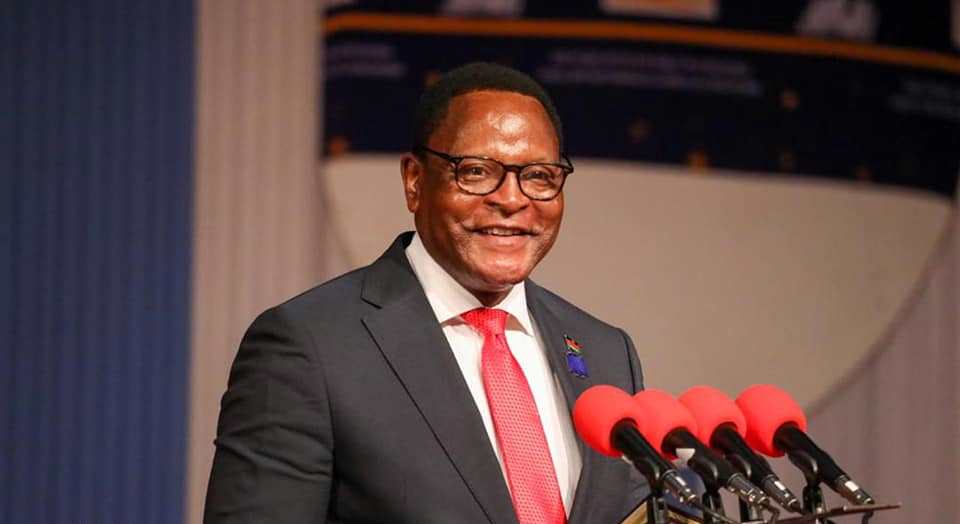The Lazarus Chakwera administration is crafting a new public healthcare plan that seeks to guarantee the poor a free pass, but beckons the well-off into cost sharing while keeping its eyes on universal coverage.
Tethered to Sustainable Development Goals (SDGs) as well as the recently launched new vision called Malawi 2063 and its initial 10-year implementation plan of up to the year 2030, the emerging Health Sector Strategic Plan, whose draft we have seen, is cast in “self-reliance” on the back of donor fatigue signals from development partners who cough at least three-quarters of the country’s health budget.
achieve SDGs and Malawi 2063 both medium and long-term plan.
Has pushed for a new plan: Chakwera
Just this week, the World Health Organisation (WHO) said in Lilongwe that Malawi must sharply ease its reliance on donors to support its own healthcare system.
Wth annual per capita health expenditures at US$39.4 amid a tightening resource envelope as domestic resources remain low, it is hard to see how Malawi can anchor its public health services without a radical shift in its funding model and to the institutional operating framework.
But it appears the Chakwera administration is determined to try to stand on its own feet, accepting that “the international aid landscape is also fragile, with aid dwindling over the past decade, increasingly unreliable and fragmented”.
The administration is advancing ambitious measures, which include widening paying services in public hospitals, introducing community contribution towards health facilities while giving more power to local people to participate in the management of the facilities.
The under-construction eight-year Health Sector Strategic Plan (III) we have seen also suggests the use of national identity cards (IDs) in accessing public healthcare services so that only the deserving poor and vulnerable groups get free access to services while the rest of the population must contribute a fee.
The draft plan focuses on increasing domestic mobilisation of resources to ensure sustainability of programmes in case donors slow down as telegraphed.
These plans come on top of the latest policy brief from WHO focusing on implementation of national action plan (NAP) on antimicrobial resistance (AMR), which has urged Malawi to reduce donor dependency.
Reads the policy brief: “Endeavour to reduce reliance on foreign partners and increase domestic investment to support critical healthcare capacities such as Infection Prevention and Control (IPC), Wash [water, sanitation and hygiene], vaccination, medicines procurement, and diagnostic and laboratory testing services to strengthen the long-term access and sustainability of implementation and overall progress”.
The policy brief provides an overview of how Malawi has in the past struggled to implement its own national plan to manage antibiotic resistance emanating from bacterial infections technically referred as antimicrobial resistance which is one of the leading causes of death in the world.
While the draft plan still considers donor funding as an option, it seeks to create a system which is more reliant on domestic financing.
As part of the financing model, government intends to sustain and increase tax financing as the main source of health financing.
It also intends to promote and formalise community-led resource mobilisation initiatives and promote efficiency of private and social insurance pools to complement the highly-constrained tax financing for healthcare.
The document adds that it will facilitate contributions of the non-poor in the informal sector who currently have the capacity to contribute, but lack the framework for doing so and contain formal and informal out-of-pocket payment within an acceptable region of under seven percent of total health expenditures.
The plan further indicates that identified poor and vulnerable groups will access the so-called health benefit package (HBP) for free at public health facilities.
Malawian formal sector employees without health insurance cover will also have some free access to services since they make a contribution through Pay As You Earn (Paye) after production of relevant identification documents.
For those on insurance cover they will access the service using their insurance cover, ID and the public health facility service provider shall claim from insurance companies.
Non-poor informal sector employees will be required to make a contribution to the cost of care through community established insurance schemes based on prepayment arrangements and their access will be upon production of the national ID card.
Non-residents staying in Malawi for less than six months will be required to buy a comprehensive health insurance scheme to access public health services.
Private health insurance will be encouraged, as a source of financing for optional cover for taxpayers who may opt out of public healthcare consumption, leaving the limited tax and donor funding to cover those living in poverty.
There is also a plan to provide a regulatory framework for private insurance, such as a medical insurance bill to oversee the financial conduct of private health insurers, establish a health insurance regulatory body, and create inspectorate capacity within this new body.
In an interview yesterday, health economist Gowokani Chijere Chirwa said the message from donors is clear that Malawi should begin to focus on domestic resources.
He said it is not true that Malawians cannot afford to pay for healthcare services, but the problem is the nature of politics, which has inculcated a culture of dependency.
“We just need to have a proper way of targeting different groups of people so that the deserving poor are not burdened. If you go to some rural areas where there are mission hospitals, people pay and life is normal. If people can afford to pay a prophet for healing, why not a public hospital?” said Chirwa.
Information from the Ministry of Health indicates that in the 2018/19 fiscal year alone, 77 percent of the estimated $774 million in health budgets was from donors.
In fact, donors account for almost 100 percent funding for HIV and Aids and are dominant in funding malaria, tuberculosis and maternal health.
The proposed strategic plan replaces the current one (2017- 2022), but this covers eight years because it is aligned to achieve SDGs and Malawi 2063 both medium and long-term plan.
The post <strong>LMC’s </strong><strong>health plan emerges</strong> appeared first on The Nation Online.
 Moni Malawi
Moni Malawi 

